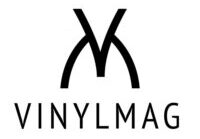The time between albums for Melody Prochet has been close to six years, and that span can be categorized by loss and rediscovery. In the initial recording of Melody’s Echo Chamber’s follow up to her acclaimed self-titled debut, Prochet abandoned the first attempt, describing it as a “dead baby”. Choosing to go it alone and end her work with Tame Impala’s Kevin Parker, Prochet dove head first into new, but familiar attempts at self-expression. She returned to her childhood conservatory to learn drums, and upon finishing, picked up several other instruments in attempt to connect with her innermost music psyche. Enlisting the aid of Sweden’s torchbearers of psyche rock, Frederik Swahn (The Amazing) and Reine Fiske (Dungen), Bon Voyage is a short and wild odyssey that explores the anima of Prochet, often with neglect to focus and time.
Bon Voyage‘s opener, “Cross My Heart”, is a quick plunge into psychedelic guitar work, backed by a marching beat, as if some sort of rowing cadence into the Bermuda Triangle. If you were excited at the prospect of a Melody’s Echo Chamber album backed by Dungen and The Amazing, this is the song you were hoping for. The song breaks down one third of the way in to an unexpected blend of scat singing, a hip hop beat, and flutes. The album takes its time in this odd juxtaposition; a theme for this record. While this does come together in a more traditional psych sound, it is abundantly clear that Prochet made this album to experiment with her influences and have fun.
If there is anything on Bon Voyage that resembles a comfort zone, it’s “Breathe In, Breathe Out”, a breathy, arousing track that lives in its looseness. However, even the familiar gives way to a tempo and key change, teeing up to a freefalling power chorus. Playful “oohs” and “ahs” keep the tone light, but the track ends abruptly after creating such a sprawling path.
Timing is an issue throughout much of this record. Prochet’s admiration of Stereolab and Broadcast are on display in the beginning “Desert Horse”, a post-punk track that envelops itself in the avant-garde. It’s an experiment with influences of Can and Neu!, splashing together dialogue breaks with vocoder looping, and while it all seems chaotic, it ends without exploring this influences in the room the track has created for itself. The track has space to move beyond admiration of other artists, and Prochet cuts a tempestuous ride short.
While some songs end before coming to fruition, there are others that take space and remain in it long past its delivery. “Quand Les Larmes D’un Ange Font Danser La Neige” is Prochet at her most lyrically vulnerable: “I found somewhere to hide / someone to held by / a safe place to cry.” The song itself is fairly simple: a blooming melody that restrains itself from some of the calamity of other tracks. While enjoyable, the track unnecessarily loops back around and revisits itself after a brief dialogue break, falling apart in small spirals reminiscent of The Amazing.
The album’s closer, “Shirim”, is also Bon Voyage’s oldest offering, released in 2014. It is Prochet at her most straight-forward, beginning with a heavy-handed drum beat and Radio Dept.-esque chiming of chords. Still playful, the track plays like the end of a long ride. While quite pronounced, “Shirim” is a hazy pop song that is a welcome respite from the disorientation from other parts of the record.
Bon Voyage is not necessarily for the same fans of the self-titled record, but it never tries to be. In telling stories from recording the album, Prochet recalls the friendships developed with Swahn and Fiske. It is music made from an affinity to new ways of expression and a devotion to personal discovery. Regarding “Desert Horse”, Prochet says, “It’s the most sculptural and mad I guess, with no real common format. It embodies my difficult life journey these last few years through my own personal desert of heartaches, thirst, mirages, moving sands, disillusionment and of becoming an adult woman in a mad world. It’s a little punk to me somehow.” This album may not have been made for anyone but her, and that is a statement to her journey of discovering artistry in the wake uncertainty. It may not always make sense. It may stop short where we want to hear more, and we may not follow it to everywhere chooses to go, but it is Prochet creating the path for herself. Finding focus on such a voyage will only bring back a stronger artist.
6.7 / 10.0

